#revised common lectionary
Text
Minor Festival Homily: Michael and All Angels (9/29/23)
Primary Text | John 7:53-8:11
----------------------------------------------
Grace to you and peace from God our Father and the Lord Jesus Christ,
Today’s passage from John teaches us the difference between God’s judgment and God’s mercy. This passage is traditionally called “the woman caught in adultery.” The scribes and the Pharisees drag the woman to Jesus not because they actually care about what she had done. They bring her so they can trap Jesus and discredit him. So they ask him, “Teacher, this woman was caught in the very act of committing adultery. Now in the law Moses commanded us to stone such women. Now what do you say?” (John 8:4-5). They think, “Aha! Now we have him! We have him caught no matter if he says ‘Yes’ or ‘No.’” If Jesus says, “Yes, stone her” then they’ve won their case against him—he will contradict himself. If Jesus says, “No, don’t stone her” they can accuse him of teaching against Moses. What none of them saw coming was what he would say to them. First, he said nothing. But when they pressed him more on the matter, he said, “Let anyone among you who is without sin be the first to throw a stone at her” (John 8:7). In this way he blows them all out of the water.
Let’s consider what Jesus did here. He does not deny the wrongdoing of the woman caught in adultery. Adultery is no little sin. It destroys the divine institution of marriage. It tears families apart. It unsettles any little ones involved affecting them the rest of their lives. Adultery causes black mold to grow on the trust necessary for such intimate relationships. God’s judgment in the law of Moses for such a sin is death by stoning. Which, Jesus does not deny. God’s judgment is unbending. It condemns outright and totally—that is the function of the law. But Jesus says here only the one without sin can be the one to stone her. In saying that Jesus slings the mud right back at the Pharisees. For they realize that they do not qualify to throw stones—they too, have their sins. Turns out, it was not they who caught Jesus, but Jesus who caught them. So they leave one by one so that Jesus and the woman are left alone to themselves. Then, Jesus said to the woman, “‘Woman, where are they? Has no one condemned you?’ She said, ‘No one, Lord.’ And Jesus said, ‘Neither do I condemn you. Go your way, and from now on do not sin again’” (John 8:10-11). Now we begin to see the difference between God’s judgment and God’s mercy. The kingdom of Jesus is filled only with sinners, actual sinners. But forgiven sinners. Luther wrote on this passage, “God’s mercy does not deal with insignificant sins, half-sins, imaginary sins, or sins that are no sins, but real sins that are felt. For example, not to fear God, not to trust Him and believe in Him, not to love one’s neighbor, not to pray, not to hear preaching, not to keep the commandments of Moses, any violation of God’s command, something that cannot be ignored—these call for a genuine, not a meaningless, forgiveness.” According to the law this woman caught stands condemned in her adultery. According to the gospel, this woman is forgiven.
The Pharisees walked away because as sinful as adultery is, Jesus has held up the mirror, showing them that they are not so holy and pure as they think they are—they do not have a better standing than this woman they brought to shame. When it comes to sin, we are all on equal ground and equally condemned. Let us not think that we ourselves are pure and holy on the basis of what we do or do not do. In his teaching on adultery Jesus does not lower the severity of the sixth commandment on adultery—he illuminates its scope by saying anyone who even gazes at another with lust in their heart has committed adultery. So he has caught us in the act. But like the woman caught in adultery, you and I are upheld by the kingdom of the gospel—where there is no longer punishment or condemnation. The slogan of Christ’s kingdom is this: “I forgive you your sin; for in My kingdom no one is without forgiveness” (from Luther). Dear people, it is not holy, pure, and good people who are admitted to the kingdom. Those he sends far away. It is the adulterers and any who know the depth of their sin, these are the ones he brings in. And so he has brought you in by the hearing of the word, that first word that puts to death, and that second word that raises you from the dead—whatever your sin Jesus says to you, “I do not condemn you. I do not condemn you.”
#preached on the occasion of Michael and All Angels#but on the topic of the woman caught in adultery#revised common lectionary#this pericope never shows up on a Sunday morning
2 notes
·
View notes
Text
Advent Candles RCL
Week 1
Mark 13:24-37Isaiah 64:1-9Psalm 801 Corinthians 1:3-9
HopeOur Hope lies in the LordThe waiting seems long, but we wait togetherGod you shape us into your peoplePrepare our hearts for HopeUncover hope, Holy SpiritStir the Hope in us Today
Hymn Suggestions: Let All Mortal Flesh Keep Silence, Taize: Wait for the Lord (Taize could be done throughout the candle lighting liturgy)
Week…
View On WordPress
0 notes
Text
Set Free | Visual Resources for the Lectionary on July 2, 2023
[et_pb_section fb_built=”1″ _builder_version=”4.17.4″ _module_preset=”default” global_colors_info=”{}” theme_builder_area=”post_content” custom_padding=”0px|||||”][et_pb_row _builder_version=”4.19.0″ _module_preset=”default” global_colors_info=”{}” theme_builder_area=”post_content”][et_pb_column type=”4_4″ _builder_version=”4.19.0″ _module_preset=”default” global_colors_info=”{}”…
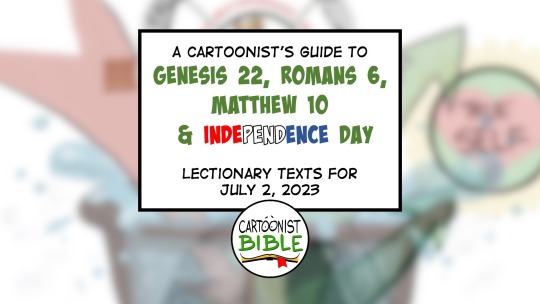
View On WordPress
0 notes
Text
What?
A relatively modest selection of fifty-seven Baptist denominations presently active in the United States and Canada, duking it out in Tumblr poll format.
Why?
Funzies. And because the Baptists' early group elimination from the @christian-denominations-poll prevented their delicious fractiousness from properly shining in this format.
When?
Preliminary heats start posting on Trinity Sunday (that's June 4th to those of you not on the Revised Common Lectionary). The final bracket of fifteen denominations will announce on June 18th.
How?
Denominations were gathered from here, excluding inactive and purely regional organizations. To avoid having to seed an enormous bracket, I divided the candidate denominations into categories based on theological-ecclesiological heritage and also Vibe. Those groups will be whittled down pair by pair in (mostly) week-long polls until one denomination is left standing in each category. Those winning denominations will be included in the ultimate fifteen-member bracket of day-long polls.
I've added Wikipedia links to articles on each denomination for the benefit of those less familiar. No Anabaptists, because 1) this selection is messy enough as it is and 2) it seems mean to make the peace churches fight.
118 notes
·
View notes
Text
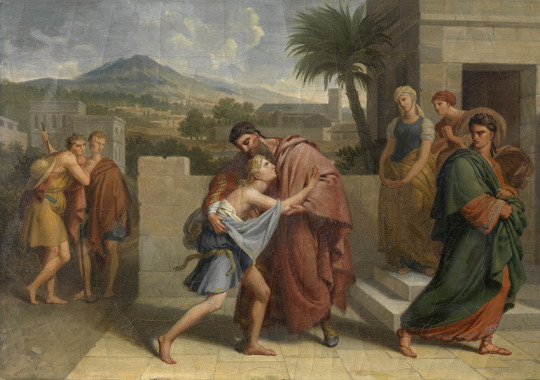
Albert Gregorius - Parable of the Prodigal Son -
The Parable of the Prodigal Son (also known as the parable of the Two Brothers, Lost Son, Loving Father, or of the Forgiving Father) is one of the parables of Jesus in the Bible, appearing in Luke 15:11–32. Jesus shares the parable with his disciples, the Pharisees, and others.
In the story, a father has two sons. The younger son asks for his portion of inheritance from his father, who grants his son's request. This son, however, is prodigal (i.e., wasteful and extravagant), thus squandering his fortune and eventually becoming destitute. As consequence, he now must return home empty-handed and intend to beg his father to accept him back as a servant. To the son's surprise, he is not scorned by his father but is welcomed back with celebration and a welcoming party. Envious, the older son refuses to participate in the festivities. The father tells the older son: "you are ever with me, and all that I have is yours, but your younger brother was lost and now he is found."
The Prodigal Son is the third and final parable of a cycle on redemption, following the parable of the Lost Sheep and the parable of the Lost Coin. In Revised Common Lectionary and Roman Rite Catholic Lectionary, this parable is read on the fourth Sunday of Lent (in Year C); in the latter it is also included in the long form of the Gospel on the 24th Sunday of Ordinary Time in Year C, along with the preceding two parables of the cycle. In the Eastern Orthodox Church it is read on the Sunday of the Prodigal Son.
Albert Jacob Frans Gregorius, or Albert Jacques François Grégorius (26 October 1774, Bruges - 25 February 1853, Bruges) was a Flemish-Belgian portrait painter and Director of the art academy in Bruges.
11 notes
·
View notes
Text
Fr. Steve’s Sermon for Sunday, Oct. 29, 2023 (Proper 25A)
“Loving our Apex Predator Neighbor”
Download Sermon Audio (2.9Mb MP3)
Download Sermon Text (97Kb PDF)
Revised Common Lectionary for Fourth Sunday in Creation
2 notes
·
View notes
Text
My Saturday Daily Blessings
April 27, 2024
Be still quiet your heart and mind, the LORD is here, loving you talking to you...........
Saturday of the Fourth Week of Easter (Roman Rite Calendar)
Lectionary 284
First Reading: Acts 13:44-52
Responsorial Psalm: 98:1, 2-3ab, 3cd-4
Verse Before the Gospel: Jn 8:31b-32
Gospel: Jn 14:7-14
**Reflection:
http://www.dailyscripture.net/daily-meditation/?ds_year=2024&date=apr27
Sources:
Lectionary for Mass for Use in the Dioceses of the United States, second typical edition, Copyright © 2001, 1998, 1997, 1986, 1970 Confraternity of Christian Doctrine; Psalm refrain © 1968, 1981, 1997, International Committee on English in the Liturgy, Inc. All rights reserved. Neither this work nor any part of it may be reproduced, distributed, performed or displayed in any medium, including electronic or digital, without permission in writing from the copyright owner.
Meditations may be freely reprinted for non-commercial use - please cite: copyright © 2023 Servants of the Word, source: dailyscripture.net, author Don Schwager.
Scripture quotations from Common Bible: Revised Standard Version of the Bible, copyright 1973, and Ignatius Edition of the Revised Standard Version of the Bible, copyright 2006, by the Division of Christian Education of the National Council of the Churches of Christ in the United States of America. Used by permission. All rights reserved.
#catholic faith#catholic liturgy#morningreflections#prayer#christian faith#faith in god#faith in jesus#faith#virgin mary#divine mercy
0 notes
Text
The Rainbow of Tears
“But Mary stood weeping outside the tomb.” – John 20:11a
Indigo: How can I approach you, Healing One,without my proof of grief?
Blue: How can I approach you, Messiah,unless my eyes are misty?
Green: How can I approach you, Rabbouni,except with flowing tears?
Gold: How can I approach you, Holy One,without the tears of joy?
A poem/prayer based on John 20:1-18, the Revised Common Lectionary…

View On WordPress
0 notes
Text
Of Loving Grace
Here is the final sermon in the mini-series on covenants with God; youth sermon, readings, sermon, and prayer.
Youth
So, surprise! Not every word is written out for this one! You can read mine and jump off into your own meditation. You could also purchase the same curriculum I'm using. It's great, it follows the Revised Common Lectionary, and it is available for all church sizes and budgets. I'm a fan. But you can just take inspiration from these pictures, if a full-blown curriculum is not on your radar today.
Second Sunday of Lent, February 25, 2024

If you have time, you can add this four-part meditation.
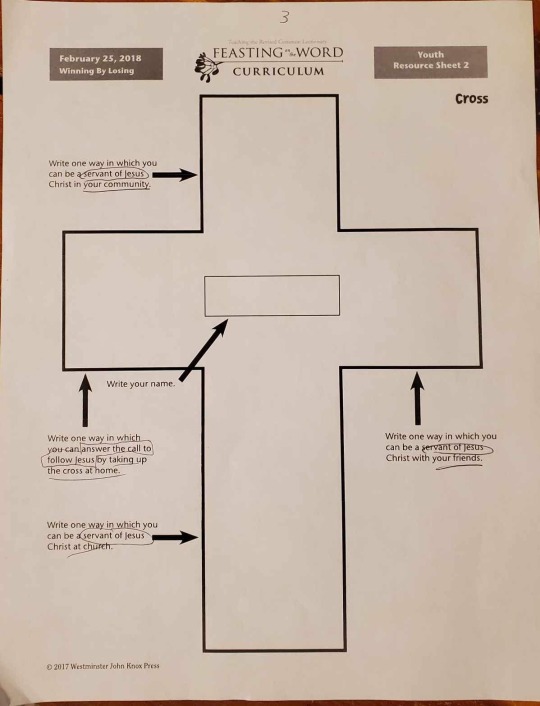
Scripture
First Reading Genesis 17:1-7, 15-16
1When Abram was ninety-nine years old, the LORD appeared to Abram, and said to him, “I am God Almighty; walk before me, and be blameless. 2And I will make my covenant between me and you, and will make you exceedingly numerous.” 3Then Abram fell on his face; and God said to him, 4“As for me, this is my covenant with you: You shall be the ancestor of a multitude of nations. 5No longer shall your name be Abram, but your name shall be Abraham; for I have made you the ancestor of a multitude of nations. 6I will make you exceedingly fruitful; and I will make nations of you, and kings shall come from you. 7I will establish my covenant between me and you, and your offspring after you throughout their generations, for an everlasting covenant, to be God to you and to your offspring after you.”
15God said to Abraham, “As for Sarai your wife, you shall not call her Sarai, but Sarah shall be her name. 16I will bless her, and moreover I will give you a son by her. I will bless her, and she shall give rise to nations; kings of peoples shall come from her.”
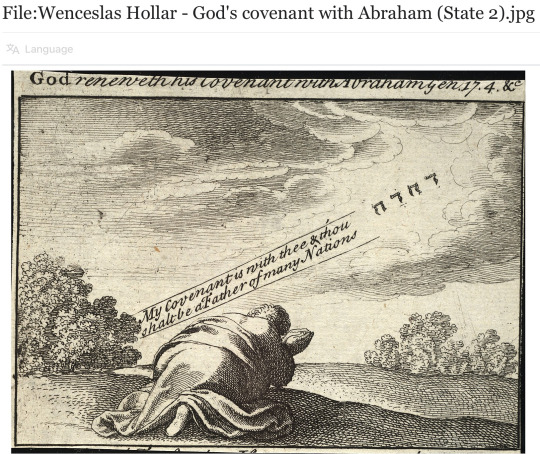
Second Reading, Paul’s letter to the Romans 4:13-25
13For the promise that he would inherit the world did not come to Abraham or to his descendants through the law but through the righteousness of faith. 14If it is the adherents of the law who are to be the heirs, faith is null and the promise is void. 15For the law brings wrath; but where there is no law, neither is there violation.
16For this reason it depends on faith, in order that the promise may rest on grace and be guaranteed to all his descendants, not only to the adherents of the law but also to those who share the faith of Abraham (for he is the father of all of us, 17as it is written, “I have made you the father of many nations”) — the presence of the God in whom he believed, who gives life to the dead and calls into existence the things that do not exist. 18Hoping against hope, he believed that he would become “the father of many nations,” according to what was said, “So numerous shall your descendants be.” 19He did not weaken in faith when he considered his own body, which was already as good as dead (for he was about a hundred years old), or when he considered the barrenness of Sarah’s womb. 20No distrust made him waver concerning the promise of God, but he grew strong in his faith as he gave glory to God, 21being fully convinced that God was able to do what he had promised. 22Therefore his faith “was reckoned to him as righteousness.” 23Now the words, “it was reckoned to him,” were written not for his sake alone, 24but for ours also. It will be reckoned to us who believe in him who raised Jesus our Lord from the dead, 25who was handed over to death for our trespasses and was raised for our justification.

Faith (1864)
Freeman Gage Delamotte (English, 1813–1862)
Our Gospel reading from Mark 8:31-38
31Then he began to teach them that the Son of Man must undergo great suffering, and be rejected by the elders, the chief priests, and the scribes, and be killed, and after three days rise again. 32He said all this quite openly. And Peter took him aside and began to rebuke him. 33But turning and looking at his disciples, he rebuked Peter and said, “Get behind me, Satan! For you are setting your mind not on divine things but on human things.”
34He called the crowd with his disciples, and said to them, “If any want to become my followers, let them deny themselves and take up their cross and follow me. 35For those who want to save their life will lose it, and those who lose their life for my sake, and for the sake of the gospel, will save it. 36For what will it profit them to gain the whole world and forfeit their life? 37Indeed, what can they give in return for their life? 38Those who are ashamed of me and of my words in this adulterous and sinful generation, of them the Son of Man will also be ashamed when he comes in the glory of his Father with the holy angels.”
This is the Word of the Lord.
Thanks be to God.

Sermon
Today is the second Sunday in Lent. I will remind you that Sunday’s are little Easters because every Sunday we celebrate the risen Christ, so Sundays are not part of the 40 days of Lent. As an aside, that is why some Christian churches do not celebrate Easter or Resurrection Sunday as a holiday because we do celebrate the risen Christ every time we worship together. Today, on our sabbath day that we are keeping holy, we praise God for our mediator, the risen Christ. So, today, Sunday, not Lent.
But, for the rest of the week according to our church calendar, we are journeying with Christ on his way to the cross. This is a solemn time for reflection. On that journey, we are reminding ourselves of why and how we are part of God’s people, so that, come Easter Sunday, we can truly understand how you and I are personally involved and able to proclaim “He is risen!”
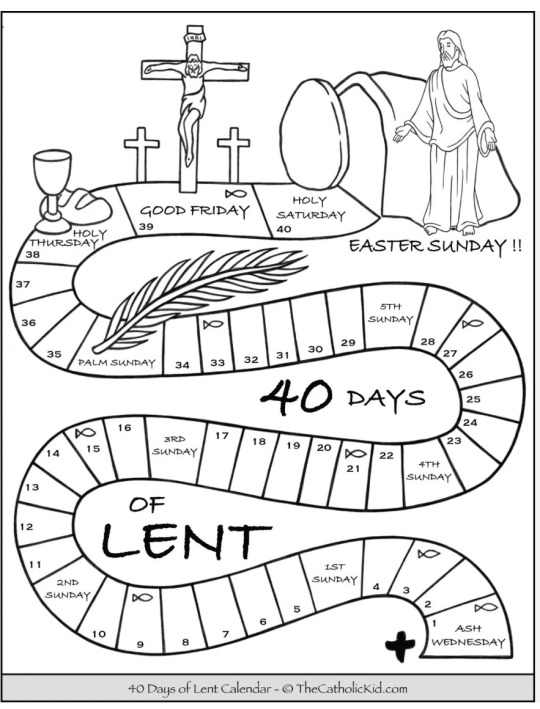
Last week, most of us read about the first covenant between God and God’s people, as we heard the story of Noah after the great flood. I served in Glenmont last week and I’m pretty sure they were sick of me saying the word “covenant.” I really hammered it home. We read that God placed the rainbow in the vast sky facing away from the people and we can see that symbol as God’s self-limiting protection of Creation, which includes us (imagine an archer’s bow pulled back to shoot). The focus of this first covenant was the fullness of creation -- all creatures in the world are in a contractual agreement under God’s protection.
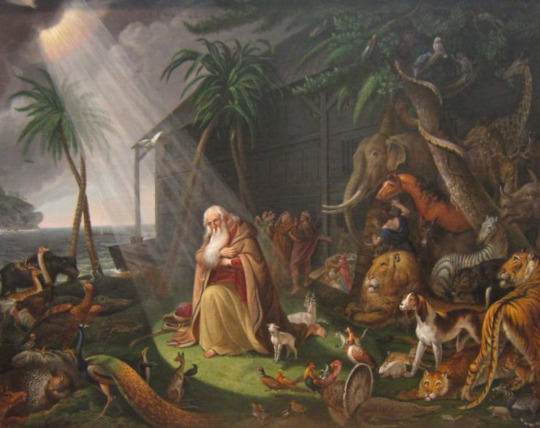
Charles Willson Peale: Noah and his ark / WikimediaCommons
In our reading from Genesis today, we read of the second great covenant between God and God’s people, shown here in God’s promise to Abram that his family line would extend to many nations -- a symbol of great blessings. Our reading skipped over the physical sign of the covenant -- circumcision of males, which was a sign that covered all people in the household, male and female, and pointed to the promise of fruitfulness and blessing. Our reading today did include the name changes of Abram to Abraham and from Sarai to Sarah. The new names mark the passage from a previous state to a new, covenantal state. In today’s terms, we understand the changing of names in the context of married couples who change their name to signify their new life and the agreement they have made to live as one family, or in the context of our trans siblings who change their names in order to step into a more comfortable personal space. Sometimes, we even change our names from a childhood calling to a more “adult” name, such as when Robbie becomes Robert, and Sissy becomes Cecelia. We understand the symbolism of a name change -- it isn’t random, and it has deep meaning.
Let’s recap a little bit: so far on this Lenten journey to the cross, we’ve been reminded that God promised to protect creation. This protection means that all of creation was not only pronounced good, but it was pronounced saveable and worthy of continuation. The world, and God’s creation which includes humanity, will continue.
We’ve also been reminded that God promised that we will thrive as we stay in covenant with our Creator. Remember, “covenant” implies a contract with more than one party. God is in covenant with us, not over us or separate from us. We are in relationship with God. God is with us. Emmanuel, right? It was just two months ago that we were singing that!
youtube
So, creation will continue, and God is with us. These promises are given in a two-party relationship of faith. This leads us right into today’s New Testament reading from Romans 4:13-16:
“13For the promise that he would inherit the world did not come to Abraham or to his descendants through the law but through the righteousness of faith. 14If it is the adherents of the law who are to be the heirs, faith is null and the promise is void....
16For this reason it depends on faith, in order that the promise may rest on grace and be guaranteed to all his descendants, not only to the adherents of the law but also to those who share the faith of Abraham.”
Paul reminds us that Abraham’s faith in God’s promises was not just for himself, but for us, his heirs in faith. In faith, the promise of God is not void. In faith, the promise of God rests on Grace, and God’s grace is revealed to us through Jesus Christ.
Our gospel reading today shows Jesus really putting his disciples to the test. They know the story of Noah. They know about Abraham. And they know, from the very mouth of Jesus, about God’s true call to faith. They have been showing love to all they meet, feeding thousands, healing the sick, listening to the outcasts, and studying the law of God through the direct teachings of the Messiah.
At this point in Mark’s gospel, Jesus is probably tired. He issues his rebuke to Peter to “Get behind me, Satan” -- to stop with the platitudes. Jesus doesn’t want Peter’s “thoughts and prayers,” his distracted and ineffectual dismissal of what Jesus is saying. Jesus wants Peter, and us, to focus on the deeper, divine meaning behind his words. Jesus wants Peter, and us, to listen as Jesus describes the new covenantal state we will enter with God after Jesus suffers, is rejected, killed, and rises again on the third day.
Jesus foretells his own manner of death as he tells the crowd to take up their crosses and follow him. We think, “Oh, Christianity, crosses -- there’s a nice piece of architecture or there’s a nice necklace. What a lovely cross.” Crosses were known to the crowds listening to Jesus. Crosses were a Roman instrument of torture. Torture was everyday life and you didn’t want a cross. But Jesus willingly walked that path, and he told them, if they would only listen, that a path that includes faithfulness to the promises of God also includes witness to Jesus’s return “in the glory of his Father with the holy angels.”
Our lessons today from the scriptures teach us that God promises us continuation, faithfulness, and justification through unfathomable grace that saves us in Heaven. We’ll end here with this: Paul says this to us in Romans, that God’s promises “It will be credited, or our text said “reckoned,” to us who believe in the One who raised Jesus our Lord from the dead, who was handed over to death for our trespasses, and was raised for our justification.” We are in covenant with God, because we believe.
Let us Pray:
O God, grant that we may stand in your grace. Grant that the light of your grace may come to us through your Word. Keep us firm in faith until the promised time when your redemption shall come to all. We sometimes ask if we can bear the hard times in our lives. We call on your promises to steady us. Help us to listen to your Word. Help us to turn to you, the One who knows the hour when we may see the promised day. In the name of our sibling and our mediator, Jesus Christ, Amen.
#duke divinity#duke#art#reformed#church#notre dame fighting irish#youtube#christian faith#appalachia#appalachian culture#bluegrass#orthodox christianity#orthodox church
0 notes
Text
You know, there's a point at which I think the computers should just know that when I start searching for "vanderbilt" I'm looking for Vanderbilt University's Revised Common Lectionary. I mean, yes, there's a non-zero chance that I'm looking up Cornelia Vanderbilt, but here's the thing, I just keep forgetting to bookmark the Revised Common Lectionary
0 notes
Text
Crossing Boundaries | Visual Resources for Both Lectionaries on April 23, 2023
[et_pb_section fb_built=”1″ _builder_version=”4.17.4″ _module_preset=”default” global_colors_info=”{}” theme_builder_area=”post_content” custom_padding=”0px|||||”][et_pb_row _builder_version=”4.19.0″ _module_preset=”default” global_colors_info=”{}” theme_builder_area=”post_content”][et_pb_column type=”4_4″ _builder_version=”4.19.0″ _module_preset=”default” global_colors_info=”{}”…
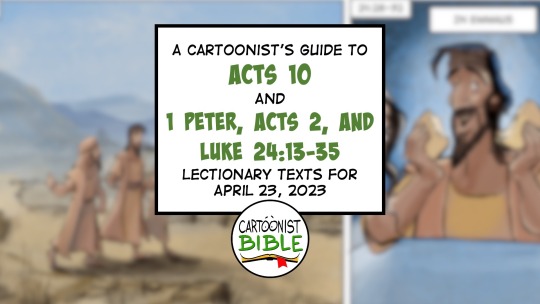
View On WordPress
0 notes
Text
Mark and the Year B Lectionary - Pastor Thoughts
This year we are in Lectionary year B, which is the year of Mark. For those who might be wondering, the lectionary is the 3-year cycle of appointed readings for every Sunday (every day in fact) of the church year.
The lectionary that we use is called the Revised Common Lectionary (RCL), which is used by many churches and denominations around the world. The lectionary was created by a committee…

View On WordPress
0 notes
Text
an important small change
I wish someone would write an account of how those who put together the Revised Common Lectionary came to their decisions as to what should be read from week to week, which passages went together, and even what should be left out of the regular three-year cycle.
I’m sure the reason no one has done that is I am a part a small niche market that would doom the book to poor sales, so the mystery will…

View On WordPress
0 notes

